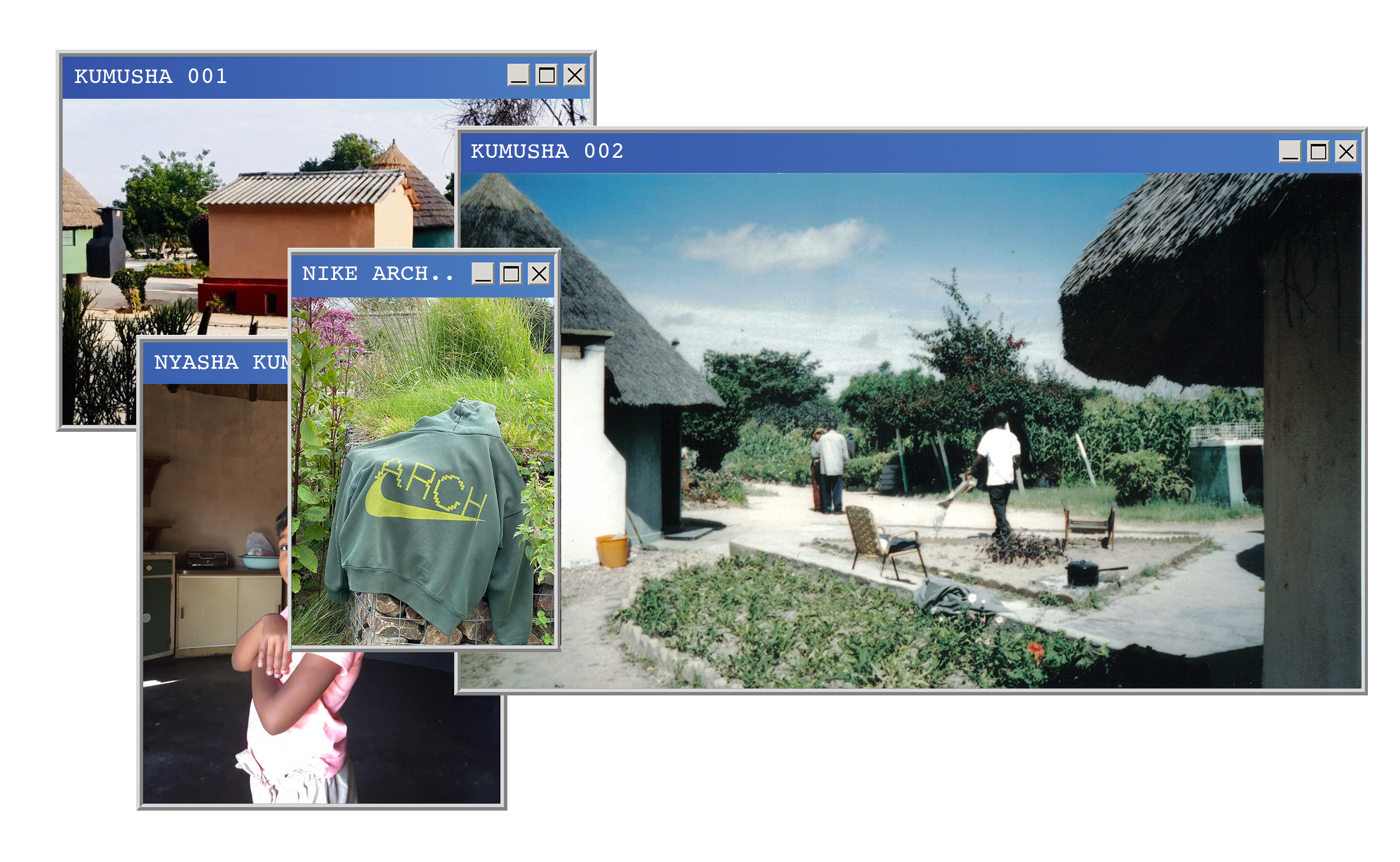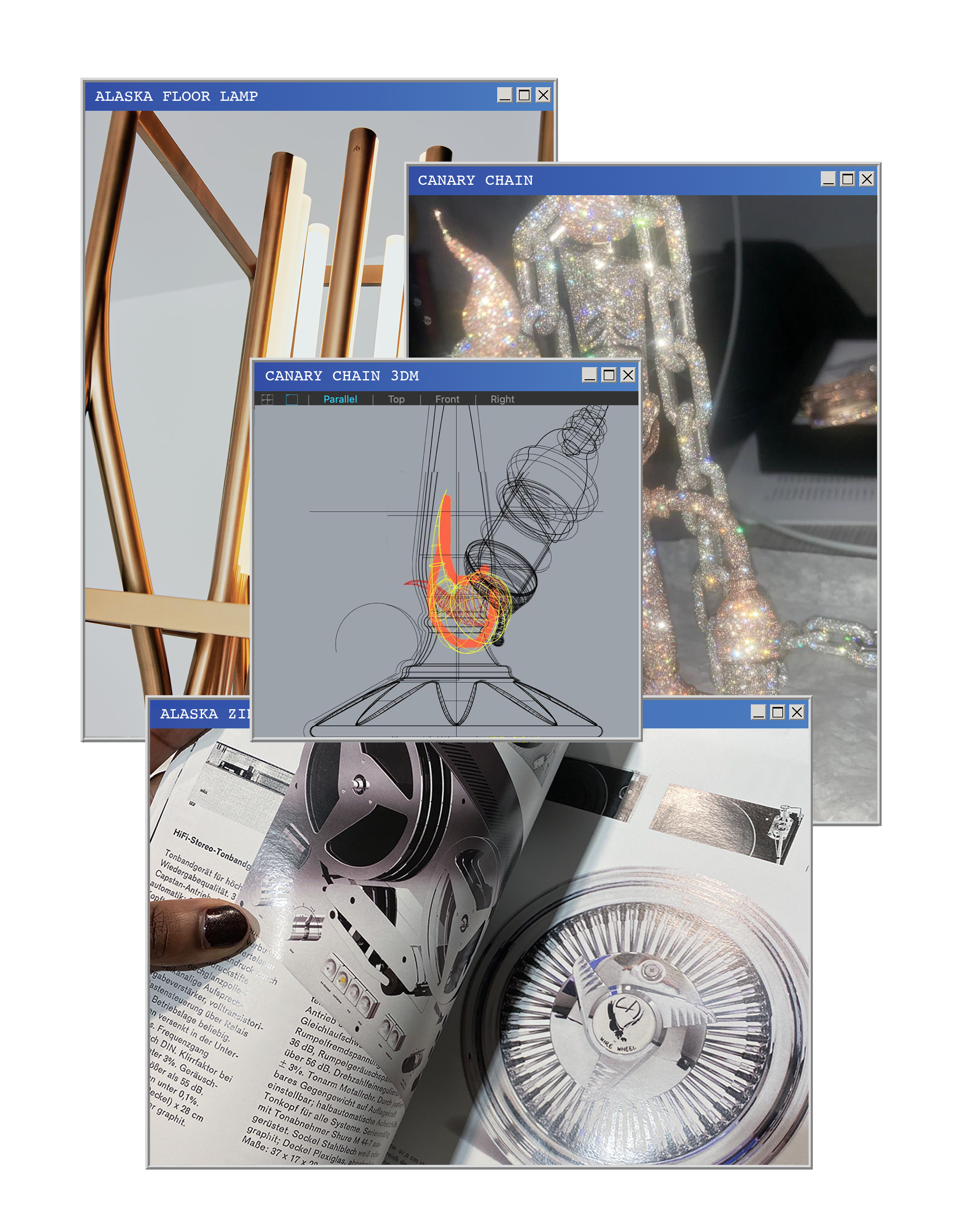Alaska Alaska and Limbo Accra on supporting Black-on-Black design and more

Ghanaian spatial design studio Limbo Accra’s rich network has developed through global partnerships that founder Dominique Petit-Frère has nurtured with leading urban space-makers and architectural enthusiasts. Our series of profiles explores the studio’s collaborations in order to discuss critical issues of our time, such as design intention, intergenerationality, creativity and change through Africa and its diaspora. For this instalment, we talk to Alaska Alaska studio director Tawanda Chiweshe on what it means to support Black-on-Black design, and how to empower the next generation of design changemakers.
Tawanda Chiweshe of Alaska Alaska
Tawanda Chiweshe is a ‘creative navigator’, designer and studio director of Alaska Alaska, a London-based multidisciplinary design practice founded by Virgil Abloh. The studio was established as a space to nurture the talent of young individuals in the industry, giving them career-changing opportunities and in so doing, empowering a new wave of Black design innovators.
Chiweshe and Limbo Accra’s Dominique Petit-Frère were brought together through the development of Freedom Skate Park, Ghana’s first-ever recreational skate park, however their connection goes beyond this. They share philosophies on the ‘power of design communities’, serendipitous connections, and the importance of utilising these to create tangible design solutions.
Just as, in a previous article in this series, digital platform Hood Century’s founder Jerald ‘Coop’ Cooper comments on the power of language in design, Chiweshe recognises that the design world often excludes people from a process which is fairly ‘instinctive’. He maintains that Alaska Alaska works against these barriers through ‘empowering him to verbalise his thoughts’ and in turn ‘empower those in his orbit to do the same’.

The above image illustrates studio output, offering examples in which Black culture and alternative frames of reference appear in projects.
When asked about design influences, Chiweshe explains: ‘From attending school in Hertfordshire to art school in London, my culture has been alien to all the contexts I’ve been in.’ As a consequence, his culture has given him an ‘anchor’ from which new experiences continue to be ‘juxtaposed as frames of reference’. Contrary to what he had been taught in art school, he later came to appreciate that design perspectives from his place of heritage were valuable, and ‘deserving of the same imbuement of esteem given to a Le Corbusier’.
On how to instill ‘alternative’ value systems and frames of reference in design, he remarks that there are ‘intersectional issues’, which require ‘intersectional solutions’. Chiweshe’s work through Alaska Alaska shows that through a combination of both practical and theoretical work, the steps towards unearthing new design worlds can be made tangible. The importance of challenging design perspectives and values is essential for laying new design pathways for future generations and his work through Alaska Alaska is but one activation site where these changes are happening.
In creating the below media piece, Chiweshe was inspired by the idea of a ‘cutting room floor’, something he’s ‘always perceived to be more important than the final outcome’. He was interested in channelling ways to present work that ‘doesn’t look in its final state or showcased context’ – in addition to showing multiple pieces of work together, allowing the works to create their own relationships.
We are currently gearing up for the next instalment in this series of profiles by Wallpaper* and Limbo Accra – already including Hood Century in the US, and Alaska Alaska in London, with more to follow soon.
Receive our daily digest of inspiration, escapism and design stories from around the world direct to your inbox.
Nana Ama Owusu-Ansah is a writer and photographer from London. She first wrote for Wallpaper* in 2021, in a series on the new vanguard of African designers practising in Africa and its diaspora. She is drawn to projects centring on decolonial approaches to art, architecture, as well as community and sustainability. Nana Ama read Economics and Spanish at University of St Andrews, and, as an avid linguist, is passionate about using accessible language to invite new audiences to engage in design discourse.